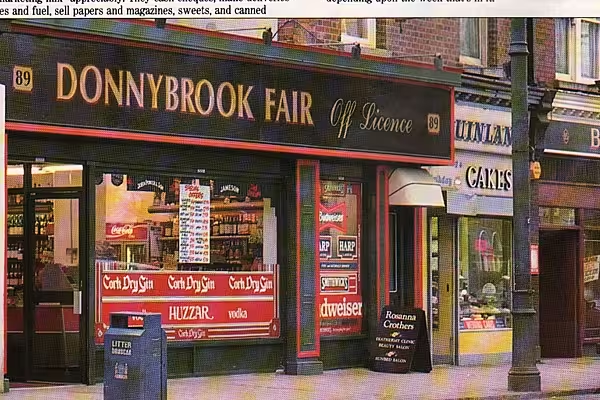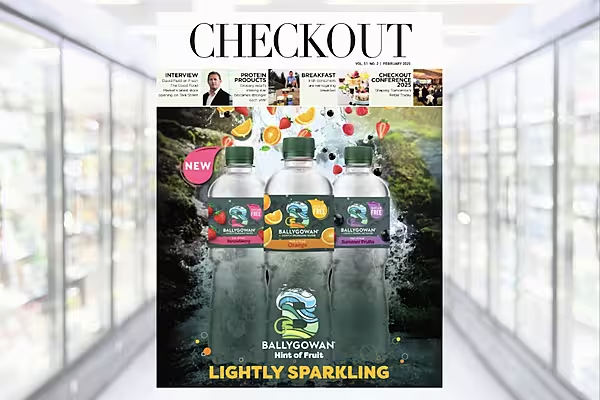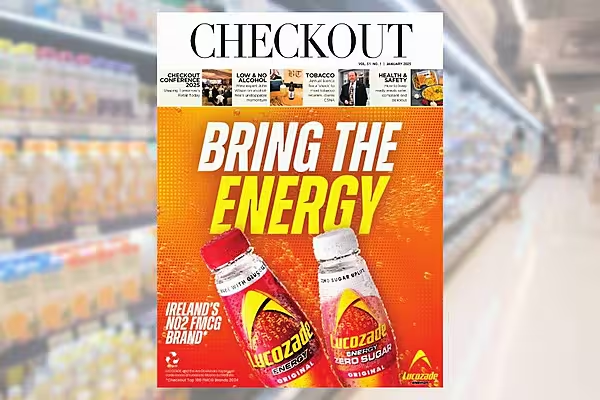This year, Checkout commemorates its 40th anniversary, and with this in mind, every week, Retail Intelligence is going to 'reel in the years' and publish a story from our extensive archives. This article first appeared in Checkout in February 1990.
7-11 has purchased a 1,500 sq f. retail premises on the main street in Donnybrook, Dublin 4, for an estimated £1/2m. The acquisition is the America-based chain’s fifteenth since coming to Ireland just over two years ago and is expected to further heighten the “convenience store/symbol group battle” which has been simmering in Dublin’s fashionable suburb for the past six to nine months.
The ‘battle’ for Donnybrook purses is not totally unexpected. Its main street is a major thoroughfare into and out of the city. And its commercial life – until recently – has been sleepy and uninspired. In short it was – and some argue still is – the proverbial plum, ripe for the picking by any aggressive businessman or acquisitive symbol group.
The first to spot the fashionable suburb’s potential was Shell. Approximately a year and a half ago, it built a six-pump petrol station on the main street complete with a 300 sq ft convenience store which stays open 24 hours a day, cashes cheques and accepts credit cards.
The second was Centra. Last year, it negotiated a price (reputedly in the region of £30 per sq ft) for a 2,500 sq ft retail outlet in a newly constructed mini mall directly opposite Woods – 'the' grocery store in Donnybrook for the past 100 years. Two months ago it opened its doors (24 hours a day) offering Donnybrook denizens a cheerful and inviting purpose-built supermarket, off-street parking (20+ spaces) and friendly staff. “People tell us we’re friendlier than the other shops around,” said a Centra assistant “and that our prices are cheaper.”
The third was Billy Roe, who togther with a colleague bought Abbey Stores in Donnybrook Mall (1,500 sq ft, of which only one half is retail floor space) for £295,000 last summer. “We bought it primarily because of its turnover (reputedly we in excess of £1?2 million annually),” he admits candidly, “and probably, I guess, because we are both local, know the area, and wanted to work in it. We’ve the best location in Donnybrook,” Roe maintains, estimating that between 1,400-1,600 customers shop there daily. Abbey Stores is the only store in the area to sell bus tickets and along with Woods and Furlong's (another well known and established Donnybrook merchant), also sells lottery tickets, which Roe says brings in £800-£1,000 a week.
The fourth – and latest – is 7-11, which last month offered Marrons delicatessen a price, rumour has it, they couldn’t refuse. “It’s s superior site in an ideal location,” explained 7-11’s Liam Prendergast, “and we are seeking planning permission for a 24-hour convenience store. The number of shops doing well in the area has indicated to us that there is money to be made in Donnybrook.”
The suburb's “established” shopkeepers do not disclaim Prendergast’s assessment, not have they taken the increased competition lightly. “They’ve pulled their socks up,” explained one, not wholly unrelated bystander, “and they have done it fast – very fast.”
Five months ago, and shortly after the Centra announcement, Woods switched from Spar to Spar 8 til Late and underwent a major revamp, both inside and out. “We put in new shelving, painted, and installed interior signage,” explained John Hickey, manager (whose great aunt was one of the original Woods). “We even reverted to the store’s original wooden front, replacing the plastic which we’d had for a number of years.”
Further along the road, Callahans, which is also owned by Furlongs, was refitted and repainted. And at about the same time, Donnybrook Fair’s manager/owner Peter O’Hare completed the finishing touches on his third revamp in ten years, adding extra footage from an earlier overhaul in 1989. Now 1,800 sq ft, the shop is open until 11pm six days a week, has the only fresh meat counter in the area aside from the local butcher, and is one of only two off-licences (aside from the pubs) open after 7 pm.
His own trade is good, but like others in the suburban village, O’Hare is baffled by the sudden onslaught of competition, particularly that of the 24-hour variety. As if of one voice, businessmen point out that:
*although it is located on a major road, there is not much business after 7-8 pm except those coming out of the pubs on their way home
*although the community is fashionably gentile, actual household numbers have not increased appreciably in the past two decades aside from Donnybrook Manor, a small housing estate built two-three years ago.
So why is the ‘Battle’ in Donnybrook? Is the prospect (fact) of affluent clientele enough to outweigh an on-going battle for over the same static number of clients? And, if so, is “24 hours” the marketing ploy to use?
The establishment thinks not, pointing to the Centra example which, although still in an embryonic stage, has not had a smooth sailing. They estimate that the store currently is turning over £9-£13,000 a week. “If that is true,” said one businessman, “they aren’t making a profit,” General consensus is that Centra will shortly give up its 24 hour schedule, leaving it to Donnybrook Fair, Abbey Stores, Shell et al to cater for any late night revellers that might be lurking along the road to the dual carriageway.
There is money to be made in Donnybrook, but as Centra has discovered, the established marketplace is every bit as fast and aggressive in responding. 7-11 and other entrepreneurs proceed with caution!









